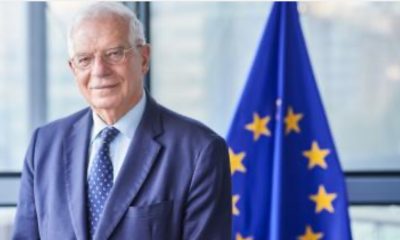EU
Nuwe EU-reëls vir # Broadcasts beskerm # EuropeanCreativity


The European Parliament’s Legal Affairs Committee have endorsed the changes to the so-called SatCab Directive. “The trilogue agreement with Council approved today is a significant victory for the EPP Group. We managed to keep a balance between the interests of internet users while at the same time protecting the European film industry. Cultural diversity and creativity in Europe will be protected,” said Angelika Niebler MEP, the group’s spokeswoman on the dossier.
The agreement includes mechanisms to facilitate the clearance of copyright and related rights of radio and TV content for cross-border digital broadcast and retransmissions. The new rules will provide a fairer and wider distribution of news and current affairs programmes and promote access to information.
“I welcome the fact that the Parliament reached an acceptable deal with the Member States. We agreed that broadcasters could make their news, current affairs programmes and also their own fully-financed productions available for the online community and hence accessible across the whole European Union,” said Pavel Svoboda MEP, chairman of the Legal Affairs Committee who is responsible for the report.
“It was the EPP Group that listened to the fears of the European film-makers. I am glad that we found a common approach with the Member States by modernizing the copyright rules and adapting them to the internet realities and at the same time safeguarding the creative industry in Europe,” concluded Angelika Niebler MEP, who led the negotiations on the file in the Legal Affairs Committee.
Deel hierdie artikel:
-

 Konferensies3 dae gelede
Konferensies3 dae geledeNatCon se aan-af-konferensie is deur die Brusselse polisie gestaak
-

 massa toesig4 dae gelede
massa toesig4 dae geledeLek: EU-ministers van binnelandse sake wil hulself vrystel van kletsbeheer grootmaat skandering van private boodskappe
-

 Konferensies4 dae gelede
Konferensies4 dae geledeNatCon-konferensie gaan voort by die nuwe Brusselse lokaal
-

 Europese Buitelandse Aksiediens (EAAS)4 dae gelede
Europese Buitelandse Aksiediens (EAAS)4 dae geledeBorrell skryf sy posbeskrywing


























